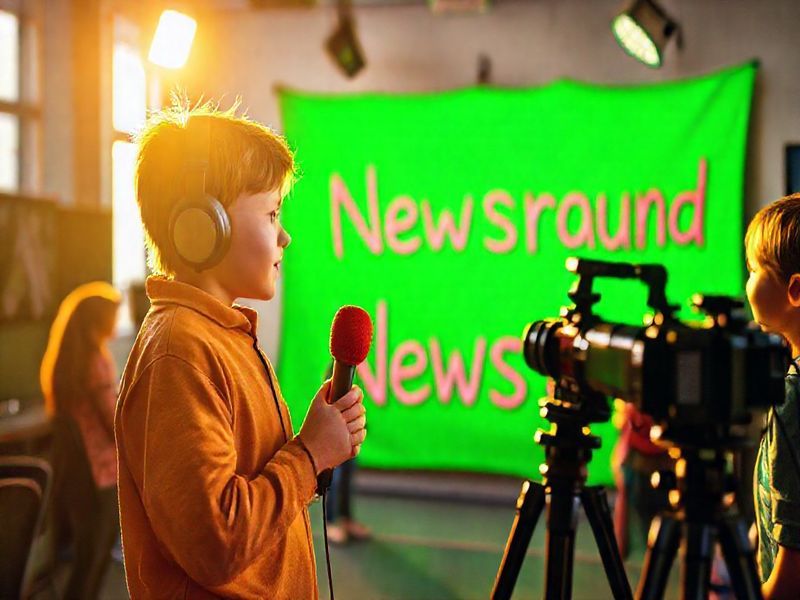newsround
NEWSROUND: THE PLANET’S DAILY DOSE OF WHIPLASH, NOW WITH EXTRA SCHADENFREUDE
By Our Correspondent, filed from Somewhere with Spotty Wi-Fi
The word “newsround” used to sound quaint—like something a BBC announcer chirped between puppet segments while your toast burned. Today, however, it is the metronome of global anxiety: an endless, algorithm-curated carousel of triumph and catastrophe that spins faster than a hedge-fund trader’s moral compass. From the hushed newsrooms of La Nación to the neon-lit control rooms of Seoul’s YTN, the format is identical: 90-second bursts of context-free urgency, delivered in the soothing baritone of someone who definitely practiced saying “unprecedented” in the mirror.
Global Context, or Why Your Ulcer Has a Passport
In Brussels, EU regulators have begun timing their press conferences to coincide with the American morning shows, ensuring that when Washington wakes up cranky, Brussels has already blamed Silicon Valley for whatever just melted. Meanwhile, Chinese state media’s nightly “Xinwen Lianbo” has quietly adopted the same rapid-fire template, proving that authoritarian efficiency can crib from Western attention-deficit disorder with the best of them. From Lagos to Lima, the template is viral: a rotating cast of experts who all sound like they’re reading the same Wikipedia paragraph, stock footage of masked citizens, and a lingering drone shot that screams, “Look, we could afford a drone.”
The implication? Information is now a transnational commodity whose sell-by date is measured in heartbeats. The average viewer in Mumbai digests the same three-sentence summary of the Fed’s latest rate hike as the bleary-eyed commuter in Milan. The only difference is the local anchor’s pronunciation of “quantitative tightening,” which ranges from solemn to outright erotic.
Implications, or How to Monetize Existential Dread
Advertising departments have noticed that the most lucrative newsround slots are the ones wedged between natural disasters and celebrity obituaries. Nothing sells ergonomic mattresses quite like footage of a capsized ferry fading into an advert for memory foam. In Nairobi, telecom giant Safaricom pioneered the “grief bundle,” a data package that activates automatically when #PrayForSudan trends worldwide—half-price WhatsApp for 24 hours, valid in the dark humor of your choosing.
The broader significance is that attention has become the last non-counterfeitable currency. Dictators, democrats, and diet-pill influencers all bid for the same six-second pre-roll. The result is a geopolitical auction where the house always wins and the losers end up in the comments section, typing in all caps about crisis actors.
Human Nature, or the Comfort of Controlled Panic
Psychologists from Utrecht to Uruguay have coined the term “headline fatigue syndrome,” a condition whose symptoms include refreshing Twitter while on the toilet and experiencing phantom push notifications during REM sleep. Curiously, no one seems willing to log off; instead, we crave ever-tighter newsrounds, the informational equivalent of espresso shots laced with dread. There is, after all, a perverse comfort in discovering that the asteroid hurtling toward Earth is at least bipartisan.
Conclusion, or Fade to Black Before the Next Ad
So here we are, citizens of a planet that refreshes its trauma feed every 180 seconds. The newsround has become our shared lullaby and alarm clock, a perpetual motion machine powered by human catastrophe and cat videos. Tomorrow it will be shorter, louder, and sponsored by a crypto exchange whose CEO is already under indictment. We’ll watch anyway—because somewhere between the wildfires and the pop-star divorce, there’s a 12-second clip of a baby panda sneezing, and for one merciful moment, the world forgets to end.







